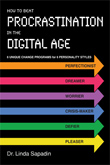“You idiot. Can’t you do anything right? I asked you to do a simple task. And what did you do? You screwed it up big time. What the hell is the matter with you?”
 Some people believe that humiliation is a good teacher. You gotta learn. You must not forget. You will be punished if you don’t do it right. Humiliation will make a lesson stick.
Some people believe that humiliation is a good teacher. You gotta learn. You must not forget. You will be punished if you don’t do it right. Humiliation will make a lesson stick.
These folks are right. Humiliation is a good teacher.
But the lesson you learn is not what the teacher is intending. You don’t learn to do things better. You don’t learn to upgrade your skills. You don’t learn to trust your ability to learn.
What you do learn, instead, is to:
- Embrace rigidity: “I can’t do this. No way. No how.”
- Play it safe: “I’ll just make a fool of myself so I’m sticking to the tried and true.”
- Shirk responsibility: “It’s too hard for me; you have to do it for me.”
- Develop a fixed perspective: “I’ve never been any good at this and I never will be.”
Yes, humiliation throws cold water on the joy of learning and shuts down the joy of risk taking. Indeed, a single dose of humiliation in a vulnerable child can lead to a belief that “I can’t do it,” while a regular dose of humiliation will profoundly cripple a child’s belief in himself and in his ability to learn. “I’m dumb. I’m stupid. I’m no good. And don’t try to convince me otherwise.”
If you’ve been exposed to the debilitating effects of humiliation, it’s time to rectify the damage that has been done. Here’s what you must do:
- Know that there’s nothing immutable about what you know and don’t know. All you can honestly say is that you don’t know how to do something yet. Put the time and effort into it, and you’ll be surprised at what you can learn.
- A mistake is not a felony. And it’s certainly not deserving of capital punishment. The most you can say is, it’s a misdemeanor or an oops! Just an error. Something that slipped your mind. Something you forgot because you were distracted. Next time you make a mistake, don’t agonize over it. Instead, acknowledge it. Fix it (if you can). Learn from it. Move on to your next challenge.
- Keep stretching. Keep reaching. Keep learning. Make new mistakes; it means that your mind is active. You have not given up on yourself. You are not content to live within a comfort zone the size of a postage stamp. No, that’s not for you. It’s a big wide world out there. With lots of things to learn. You want to be a part of the world. Not apart from the world.
- No matter how much you learn, how much you know, there will be stuff you don’t know. This is not proof of your stupidity. It is not something to be ashamed of. It is simply life. We cannot know it all.
- When you don’t know what to do, improvise. That’s what everybody else is doing (whether they admit it or not). Make it up on the spot. Sometimes it will work out well. Sometimes it won’t. That’s the nature of life.
- When something intrigues you, go for it. Don’t tell yourself “you’re no good at this.” Take up the challenge. Put in the hard work. Ask for assistance. Tolerate the discomfort. And watch yourself bloom.
Whatever humiliating experiences you have had in the past, do not let them continue to define you today. Right now, this moment, this very moment, before you put this article down, say something that gives homage to who you are and what you’re about. If whatever you say brings a smile to your face or warmth to your inner being, you know you’ve chosen the right words.
©2013
Linda Sapadin, Ph.D. is a psychologist and success coach. She specializes in helping people enrich their lives, enhance their relationships and overcome self-defeating patterns. Contact her at lsapadin@drsapadin.com or visit her website at www.PsychWisdom.com.




